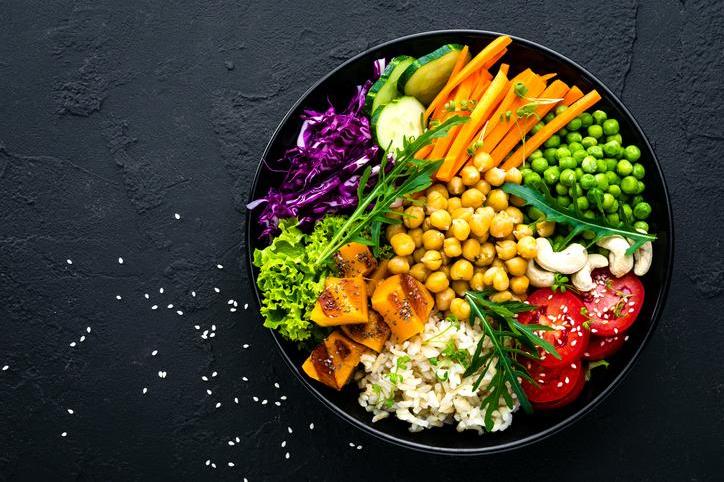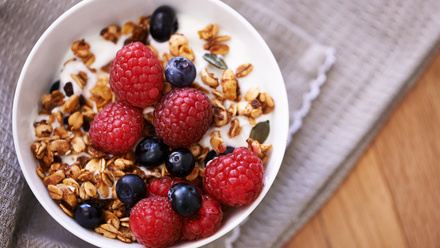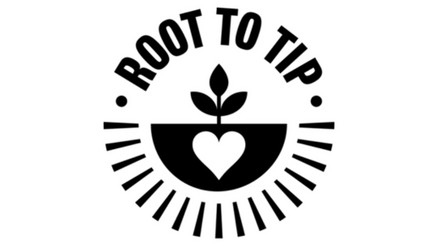A plant-based diet is based on foods that come from plants with few or no ingredients that come from animals. This includes vegetables, wholegrains, legumes, nuts, seeds and fruits.

You may choose a plant-based diet for a variety of reasons. These could include concern about animal welfare, health benefits, environmental concerns or personal preference.
Plant-based diets can support healthy living at every age and life stage. But as with any diet, you should plan your plant-based eating to meet your nutritional needs.
Those who follow plant-based diets are categorised as:
- Lacto-ovo vegetarians: eat dairy foods and eggs but not meat, poultry or seafood
- Ovo-vegetarians: include eggs but avoid all other animal foods, including dairy
- Lacto-vegetarians: eat dairy foods but exclude eggs, meat, poultry and seafood
- Vegans: don’t eat any animal products including honey, dairy and eggs
- Pescatarians: eat fish and/or shellfish
- Semi-vegetarians (or flexitarians): may eat some meat, seafood, poultry, eggs and dairy
How can I eat with this in mind?
Diets centred on a wide variety of plant foods offer affordable, tasty and nutritious options. Plant-based diets rich in beans, nuts, seeds, fruit and vegetables, wholegrains (such as oats, barley and quinoa) and minimally processed foods can provide all the nutrients needed for good health.
The exception is vitamin B12. This nutrient is not available from plants. You will need to get this from fortified foods or a supplement.
Plant-based eating is recognised as an intervention to improve health outcomes. They could reduce your risk of type 2 diabetes, hypertension, cardiovascular disease and some cancers and may help you manage your weight.
If you are reducing foods that come from animals, or cutting them out altogether, there are a few nutrients that you need to pay attention to.
Protein
You can easily meet protein needs by eating protein-rich foods.
These include lentils, beans, chickpeas, seeds, nuts and nut butters (e.g. peanut butter), tofu and tempeh. Eggs and dairy are also good sources if you eat these.
Meat substitutes like soya burgers and soya sausages, mycoprotein (sold as Quorn), and seitan (from wheat) are high-quality protein sources and can be useful for those adapting to a plant-based diet. However, these can often be high in salt and fat so you should use them in moderation.
Some meat substitutes contain animal ingredients such as eggs, milk derivatives and honey. If you are trying to follow a vegan diet, you will need to read the labels carefully.
Long-chain omega-3 polyunsaturated fatty acids
These fats are important for your health.
The richest source is oily fish e.g. pilchards, salmon and mackerel. If you don't eat fish, the body can convert the essential fats found in plant-based foods, such as walnuts, flaxseeds (linseeds) chia seeds and hemp seeds, into long-chain omega-3 fatty acids.
Oils such as rapeseed (usually labelled as vegetable oil), hemp, and flaxseed oil provide essential omega-3 fats. They are preferable to corn, sesame and sunflower oils, which are lower in omega-3.
Omega-3 supplements made from algae are also available and are suitable for vegans. Find out more about this in our omega-3 food fact sheet.
Vitamin B12
You only need small amounts of this essential vitamin. If you have too little, you could suffer fatigue, anaemia and nerve damage, you may also increase your risk of cardiovascular disease.
As eggs and dairy foods contain vitamin B12, it’s unlikely you will be deficient, unless you are excluding all animal-derived foods.
If you are vegan, the only reliable sources of vitamin B12 are fortified foods and supplements. Suitable B12-fortified foods include some breakfast cereals, yeast extracts, soya yoghurts and plant-based dairy alternatives. Make sure you check the label to be sure as not all are fortified.
Since absorption varies greatly depending on the dose and your needs, it is recommended to supplement with greater than the Recommended Daily Allowance (RDA) of 1.5 micrograms to ensure adequate intake. The Vegan Society recommends you should either:
- eat fortified foods at least twice a day, aiming for 3mcg of vitamin B12 a day OR
- take a supplement of at least 10mcg daily or at least 2000mcg weekly
Vitamin D
Alongside calcium, Vitamin D is important for maintaining bone health. Your body makes this when your skin is exposed to the sun, particularly in the summer months. Learn more about vitamin D in our food fact sheet.
Calcium
Calcium is essential for bone health. An adult requires approximately 700mg per day.
Dairy foods are rich in calcium, but if you are not eating these make sure you get calcium from other sources. These include fortified plant-based dairy alternatives, dried fruit e.g. figs, nuts such as almonds, leafy green vegetables such as kale, red kidney beans, sesame seeds, tempeh and calcium-set tofu. See our fact sheet on calcium for further information.
Iron
This mineral is vital to health, as deficiency causes anaemia.
Plant sources of iron include dried fruits, wholegrains, nuts, green leafy vegetables, seeds, peas, beans and lentils. The form of iron in plant foods is absorbed less efficiently than iron from animal-derived sources such as meat and eggs.
You can increase the iron available to your body from plant-derived foods by eating plenty of fruits and vegetables rich in vitamin C.
These include citrus fruits, strawberries, berries, green leafy vegetables and peppers. Vitamin C helps the iron to be better absorbed. Find out more about iron in our fact sheet.
Zinc
Zinc is important for growth and development in childhood. It is necessary for the immune system.
Like iron, zinc absorption from plant foods is lower than from animal foods. Sources include eggs and milk.
Good plant choices include wheat germ, beans, nuts, seeds, mushrooms and some fortified breakfast cereals.
To increase zinc absorption, eat fermented soya such as tempeh and miso, soak dried beans then rinse before cooking and sprout grains and seeds.
Iodine
You need iodine for healthy thyroid function. This is needed for many bodily processes including metabolism. The major sources of iodine in our diet are dairy products and seafood. If you eat exclusively plant-based diets you may be at risk of deficiency.
You may rely on seaweed e.g. nori, wakame and kelp, or iodine-fortified plant-based dairy alternatives. Guidance is not to consume sea vegetables more than once a week.
An excess of iodine is also unhealthy, so if you are taking a supplement, speak to a dietitian. Find out more about iodine in our fact sheet.
Sustainable eating
In the UK, it is estimated that well-planned, completely plant-based, or vegan, diets need just one third of the fertile land, fresh water and energy of the typical British 'meat-and-dairy' based diet.
Reducing animal-derived foods and choosing a range of plant foods can be beneficial to the planet, animals and our health. Find out more through the BDA's One Blue Dot project.
Top tips
- Carefully planned plant-based diets can support healthy living at every age and life stage
- Plant-based diets can help to manage weight and may reduce the risk of type 2 diabetes and other chronic diseases
- You can get all essential nutrients from plant foods but vegans need to ensure a reliable source of vitamin B12
- If excluding dairy, make sure you consume other calcium-rich foods
- Include a wide variety of plant-derived foods to ensure your diet is balanced and sustainable
Source(s)
Melina V, Craig W, Levin S (2016) American Dietetic Association: Position of the American Dietetic Association: Vegetarian diets. J Am Diet Assoc. 116(12):1970-1980
Amit M (2010) Canadian Paediatric Society Position Statement Vegetarian diets in children and adolescents. Paediatr Child Health. 15(5): 303-308
Harland J, Garton L (2016) An update of the evidence relating to plant‐based diets and cardiovascular disease, type 2 diabetes and overweight. Nutrition Bulletin, 41(4), 323-338
Tuson P (2013) Nutritional update for physicians: plant-based diets Perm J 17(2) 61-66
McMacken M, Shah S (2017) A plant-based diet for the prevention and treatment of type 2 diabetes J Geriatr Cardiol 14(5) 342-354
Satija A, Hu FB (2018) Plant-based diets and cardiovascular health Trends Cardiovasc Med 28(7) 437-441
Tonstad S et al (2009) Type of vegetarian diet, body weight, and prevalence of type 2 diabetes. Diabetes Care 32(5): 791-796
Tong TYN et al (2019) Risks of ishaemic heart disease and stroke in meat eaters, fish eaters and vegetarians over 18 years of follow-up: Results from the prospective EPIC-Oxford study BMJ 366
Dinu M et al (2017) Vegetarian, vegan diets and multiple health outcomes: a systematic review with meta-analysis of observational studies Crit Rev Food Sci Nutr 57(17) 3640-3649
Pawlak R (2015) Is vitamin B12 deficiency a risk factor for cardiovascular disease in vegetarians? Am. J. Prev. Med. Jun; 48(6)e 11-26
Appleby P et al (2007) Comparative fracture risk in vegetarians and nonvegetarians in EPIC-Oxford. Eur. J. Clin. Nutr. 61(12): 1400-1406
Scientific Advisory Committee of Nutrition (2016) Vitamin D and Health. London: The Stationery Office
Scientific Advisory Committee of Nutrition (2010) Iron and Health. London: The Stationery Office
Crowe FL et al (2013) Risk of hospitalization or death from ischemic heart disease among British vegetarians and non vegetarians: Results from the EPIC-Oxford cohort study 1-3 Am J Clin Nutr; 97(3): 597-603
Craig WJ Health effects of vegan diets (2009) Am J Clin Nutr 89(5):1627S-1633S
Key TJ et al (2014) Cancer in British vegetarians: Updated analyses of 4998 incident cancers in a cohort of 32,491 meat eaters, 8612 fish eaters, 18,298 vegetarians and 2246 vegans Am J Clin Nutr 100(SUPPL 1): 378-385
Chai BC et al (2019) Which Diet Has the Least Environmental Impact on Our Planet? A Systematic Review of Vegan, Vegetarian and Omnivorous Diets Sustainability 11 4110
Langan RC et al (2017) Vitamin B12 deficiency: recognition and management. Am Fam Physician 2017 96(6) 384-389
Maares M, Haase H (2020) A guide to human zinc absorption: general overview and recent advances of in vitro intestinal models Nutrients 12(3) 762
Platel K, Srinivasan K (2016) Bioavailability of micronutrients from plant foods: an update Crit Rev Food Sci Nutr 56(10) 1608-1619
Krajcovicova-Kudlackova M et al (2003) Iodine deficiency in vegetarians and vegans Ann Nutr Metab 2003; 47(5); 183-185







